Imagine if you are throwing a surprise party for your loved one. As a B2C customer, you may have a budget in mind, but you may also get swayed by the event manager’s idea of fun and decoration. It’s a party after all; why not go all out?
Your thought process and decision-making for a surprise party as a B2C customer would be much different than if you were making a business decision as a B2B client. After all, there isn’t much fun about invoicing software or the CRM manager. That is exactly why B2B and B2C marketing are so fundamentally different from each other. Understanding these differences is the key to your marketing strategy as it affects your overall marketing campaign.
Sales Funnel

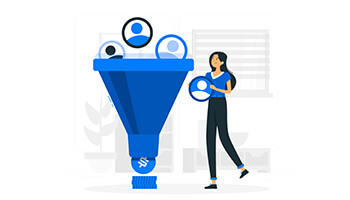
The time it takes for your target customer to convert is dramatically shorter in B2C marketing because fewer decision-makers are involved. In most instances, the B2B sales funnel will be longer than B2C. Hence, it is critical to understand your average buying cycle and design your marketing strategy accordingly.
-
B2C – Quick and Easy
-
B2B – Longer Chain of Command
Since customers already know what they need before they buy, the purchase decision is usually made by one person in a matter of minutes. In extreme cases, purchasing decisions can go as far as consulting with friends and family.
What you’ll need is incredible SEO on your website. Make sure you rank at the top for most of the search results in your niche. Keep your content short and catchy. Your customers are already on a mission to buy that product, don’t distract them with lengthy copies.
Once you have converted the customer, you can suggest other products based on their purchase. Alternatively, you can also send them discount offers to supplement their recently purchased product.
The B2B sales funnel is different because B2B marketing isn’t about dealing with an individual buyer persona. In most cases, the person who sees value in your product/services may not be the one who is paying for it. Accounting, procurement, heads of several departments, and stakeholders are involved in the purchase decision.
What you need is a multi-step marketing approach tailored to specific stakeholders. Research about the company’s upcoming strategic goals and find ways your product can fit into it. Employ use cases to demonstrate how your product can add long-term value to multiple parts of your customer’s business. Describe your products and services using the jargon and terminologies they internally use.
Ad Communication

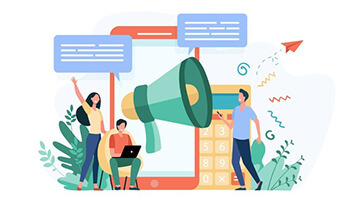
Using pop culture references and social media slang would be extremely annoying to business professionals, while using technical jargon would make B2C customers feel disconnected. The way your marketing is communicated has a huge impact on how your brand is perceived.
-
B2C – Short and Simple
-
B2B – Focus on the ROI
Messaging in B2C marketing has to be casual and relatable. Unnecessary stuffing of industry buzzwords and jargon may be off-putting for the general audience.
For B2C marketing, brands should have their unique voice, even if it means injecting some humor into their content. The casual language makes the brand seem relatable and more personal, making them trust it more. Highlight the benefits of your product and quickly communicate the things your customer is likely to experience with your product.
While B2C marketing appeals to the customers’ emotional side, B2B marketers have to interest the rational side of each stakeholder’s mind. You can do this by showcasing your business expertise.
Create long and short-form content to make them believe that they are making a profitable investment. Case studies are a highly effective tool that showcases how other businesses have saved time, money, and resources using your products or services. You can also host webinars or live events to show the multiple ways your products can be applied to their business. Create videos and blogs to highlight the USPs of your product in a bite-sized, engaging manner.
Buyer Persona/User Mapping

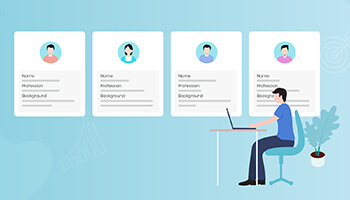
The difference between B2B and B2C marketing when it comes to buyer persona is that B2B marketing focuses on the buyer’s job profile and not them as an individual. In contrast, the B2C buyer persona focuses on individual characteristics and demographics such as age, spending habits, household income, etc.
-
B2C – Appeal to Emotions
-
What do they read, and what other media do they consume?
-
How do they prefer to receive information?
-
What are their motivations and concerns?
Once you have the answers, try to understand the underlying motivations. You may also want to include customers who asked for refunds, canceled their services, or purchased from your competitors. Knowing their preference will give you an idea of crafting your messages, imagery, and which social media channels to focus on.
-
B2B – Target Multiple Roles
Emotions play a more significant role in the purchase decision of B2C consumers, and their purchases are often impulsive. Carry out a detailed research and try to get answers to the following questions –
A person’s job title and decision-making responsibilities allow marketers to understand the characteristics of the person they are talking to. One also needs to understand what attributes they are looking for in their supplier. Some may give more importance to features, while others may look at the pricing. Figure out their pain points and their goals so you can include those in your copy and provide solutions using your products or services. Create multiple buyer-personas based on all the job titles in your sales funnel.
Relationship Building


-
B2C – Transactional Relationship
-
B2B – Relational
Even though B2C customers make return purchases and are loyal to certain brands, it is unlikely that they get to know the brand or the team behind it on a personal level. As such, B2C marketing is strictly transactional rather than relational. Even if a salesperson directly sells the products, the relationship between a brand and the customer is short-term and is often limited to a one-time purchase.
B2B customers are more invested in the brand’s story and ethos. They seek to build strong and lasting relationships between you and their business. The relationship in B2B doesn’t end with a sale. The brand usually provides ongoing support to their customers. The focus lies in creating an overall experience and working with the business for the long term.
Marketing Costs

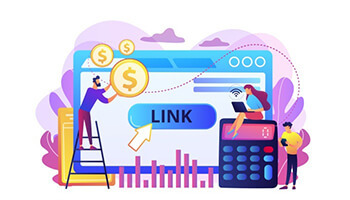
As a part of the marketing campaign, the marketing department needs to figure out the average budget per customer. When we look at B2B vs. B2C, it is crystal clear that there will be a huge difference in the budget that targets an individual versus a budget that targets an entire corporation.
-
B2C – Less Investment
-
B2B – More Expensive
B2C customers make snappy, impulsive purchases. This saves the marketers a lot of money and effort on resource allocation and ad revenue.
Following a long chain of command, a B2B transaction involves more decision-makers and takes more consideration time. Hence, marketing to the B2B market can be more expensive than the B2C market. The decision-maker in B2B is never a single person; this means marketers need to spend more money creating content, videos, and the like.
Ace Your B2B and B2C Marketing with the Best Digital Growth Marketing Agency

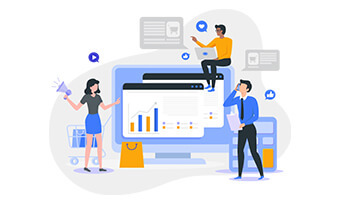
Marketers need to be aware of the difference between B2B vs B2C marketing to create high-performing marketing campaigns. That’s where Amura Marketing Technologies comes into play.
As the leading digital growth marketing agency, Amura Marketing Technologies helps you execute a powerful acquisition strategy no matter which side of the business you are on.

